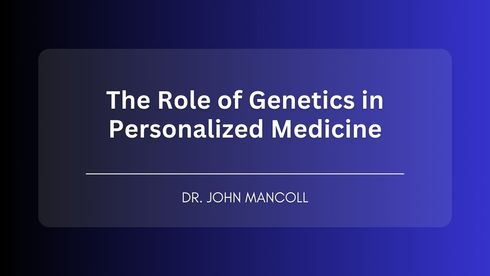Personalized medicine, also known as precision medicine, is revolutionizing the healthcare landscape by tailoring medical treatment to the individual characteristics of each patient. One of the most significant contributors to this approach is the field of genetics. Understanding the role of genetics in personalized medicine can provide deeper insights into how we diagnose, treat, and prevent diseases more effectively.
What is Personalized Medicine?
Definition and Scope
Personalized medicine is a medical model that proposes the customization of healthcare, with medical decisions, treatments, practices, or products being tailored to the individual patient. By integrating clinical and genetic information, this approach aims to optimize the efficacy of treatments, minimize adverse effects, and improve overall patient outcomes.
Historical Context
The concept of personalized medicine is not entirely new. Physicians have long recognized that patients respond differently to treatments. However, advances in genetics and genomics have significantly accelerated the development of personalized medicine in recent decades.
The Genetic Basis of Personalized Medicine
Understanding Genetics and Genomics
Genetics is the study of genes, heredity, and genetic variation in living organisms. Genomics, a related field, involves the comprehensive analysis of the entire genome of an organism. The human genome consists of approximately 20,000-25,000 genes that influence a wide range of physiological traits and responses to environmental factors.
Genetic Variability and Disease
Genetic variability plays a crucial role in how individuals develop diseases and respond to treatments. Variations in DNA sequences, known as polymorphisms, can affect the function of genes and proteins, influencing the susceptibility to diseases and the effectiveness of drugs. For example, certain genetic mutations are known to increase the risk of developing specific cancers or cardiovascular diseases.
Applications of Genetics in Personalized Medicine
Pharmacogenomics
Pharmacogenomics is the study of how genes affect a person’s response to drugs. By understanding a patient’s genetic makeup, healthcare providers can predict which medications and dosages will be most effective and safe. For example, genetic testing can identify patients who are likely to experience adverse reactions to certain drugs or who may require higher or lower doses for optimal efficacy.
Targeted Therapies
Targeted therapies are treatments that specifically target genetic abnormalities present in certain types of cancer or other diseases. For instance, in breast cancer, the presence of HER2 gene amplification can determine the use of targeted therapies like trastuzumab (Herceptin), which specifically inhibits the HER2 protein and improves patient outcomes.
Genetic Testing and Screening
Genetic testing can identify individuals at risk for hereditary conditions, enabling early intervention and preventive measures. For example, BRCA1 and BRCA2 gene mutations significantly increase the risk of breast and ovarian cancers. Identifying these mutations allows for increased surveillance, risk-reducing surgeries, or chemoprevention strategies.
Personalized Treatment Plans
Genetic information can guide the development of personalized treatment plans for chronic diseases such as diabetes, hypertension, and asthma. By considering genetic factors alongside lifestyle and environmental influences, healthcare providers can create more effective management strategies tailored to individual patients.
Ethical and Practical Considerations
Ethical Concerns
The integration of genetics into personalized medicine raises several ethical concerns, including issues of privacy, informed consent, and potential discrimination. Ensuring that genetic information is used responsibly and that patients are fully informed about the implications of genetic testing is paramount.
Accessibility and Cost
While personalized medicine holds great promise, its widespread implementation faces challenges related to accessibility and cost. Advanced genetic testing and targeted therapies can be expensive, and ensuring equitable access to these innovations is a critical issue that healthcare systems must address.
The Future of Genetics in Personalized Medicine
Advances in Genomic Technologies
Rapid advances in genomic technologies, such as next-generation sequencing, are making genetic testing more accessible and affordable. These technologies are expected to further enhance our understanding of the genetic basis of diseases and enable the development of more precise and effective treatments.
Integration with Other Data
The future of personalized medicine will likely involve integrating genetic data with other types of health data, including proteomics, metabolomics, and patient lifestyle information. This holistic approach can provide a comprehensive understanding of health and disease, leading to even more personalized and effective healthcare solutions.
Conclusion
The role of genetics in personalized medicine is transformative, offering the potential for more precise, effective, and individualized healthcare. By harnessing the power of genetic information, personalized medicine can improve patient outcomes, reduce adverse effects, and pave the way for a new era of medical treatment tailored to the unique genetic makeup of each individual. As technology and research continue to advance, the integration of genetics into everyday clinical practice will become increasingly important, bringing us closer to truly personalized healthcare.

